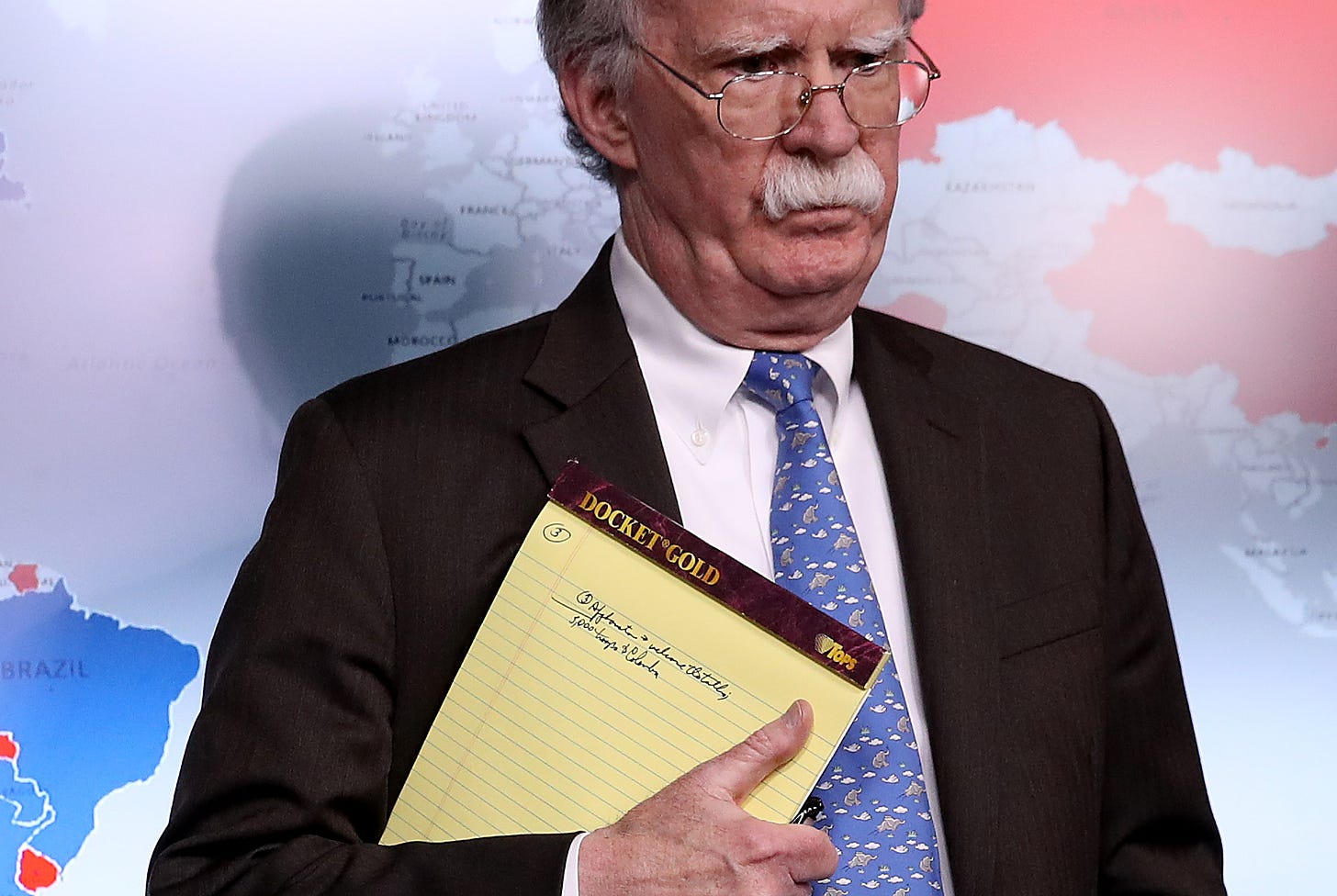No, 'All Options on the Table' Doesn't Mean We're About to Invade Venezuela
Donald Trump is impulsive and unpredictable, but John Bolton's comments Monday are just boilerplate.

With his "America First" nationalist bravado, his recurring threats to abandon NATO, and his abrupt decision to pull out of Syria, Donald Trump has at least avoided the charge that he's a bloodthirsty neocon. Until now, judging by the reaction Monday when National Security Adviser John Bolton declined to rule out military action against Venezuela’s Nicolás Maduro.
The White House held a press briefing Monday to announce the implementation of new sanctions against the country’s state-run oil company PDVSA and to reaffirm support for opposition leader Juan Guaidó, whom the U.S. has recognized as the legitimate president of Venezuela. Asked whether the White House would consider escalating to military action, Bolton replied that “the president has made it very clear on this matter that all options are on the table.”
For many outlets, that response became the story’s headline. Talking heads reacted as though Bolton had signaled an immediate intervention—and were then given a serious boost when Twitter sleuths noticed that Bolton was carrying a notepad on which he’d written “5,000 troops to Columbia.”
Is Trump preparing to make yet another foreign policy heel turn? Should the president’s boosters start limbering up the old takes about making the world safe for democracy? Well, let’s not get too carried away just yet.
Before we go further, the usual presidential-prediction caveat: Donald Trump is impulsive and unpredictable and governs less by ideology than by whim, and that goes double for foreign policy.
That said, there are plenty of reasons to doubt that Bolton’s comments hearken a coming deluge. “All options on the table”? That’s total boilerplate, a classic spokesmanly non-answer—common in all administrations, and absolutely critical in one where the guy in charge seems to delight in contradicting his own mouthpieces. The “5,000 troops to Colombia” chicken scratch? Opinions vary—some have suggested Bolton showed the page deliberately to mess with Maduro—but suffice it to say that one hawkish adviser’s meeting notes do not a military invasion make.
It’s true that President Trump’s foreign policy record has been erratic—lurching between isolationist and interventionist poles with little warning. But this narrative obscures the fact that most of Trump’s “hawkish” moves have been cases of agreeing to maintain the status quo in conflicts he inherited, not launching America into totally new arenas of war.
Aside from the campaign against ISIS, the president’s only honest-to-God military escalation so far—air strikes he ordered against Bashar Assad’s regime in Syria in April 2017 and April 2018—was issued in response to chemical weapons attacks on civilians that were attributed to the Assad regime. Maduro, of course, has committed more than his share of human rights abuses. But the situation in Veneuzuela is complex—Maduro is backed by Russia and China—and thus far there is little appetite domestically or internationally for U.S. to intervene.
Could circumstances change in the future? Of course they could. That's the whole reason for the “all options” boilerplate: Venezuela is highly unstable, and no one knows how the struggle between Maduro and Guaidó will pan out. For now, though, everyone should feel free to breathe.










